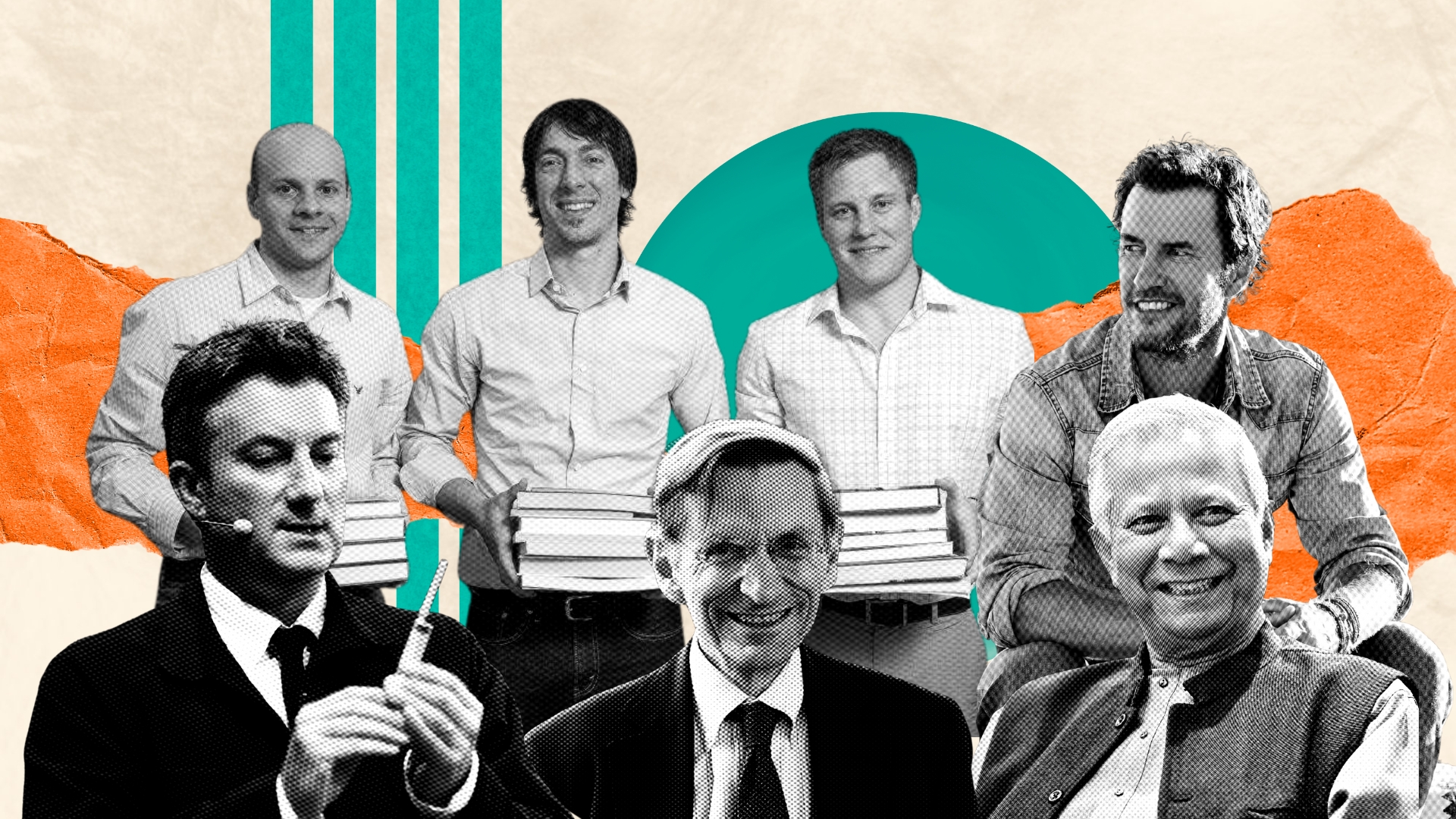
Social entrepreneurship unites ideas aimed at solving real-world problems – from poverty to inequality. Behind these ideas are real people. Among them are the founder of the microloan system for those in need, an entrepreneur who transformed shoe sales into a way to help children, and the initiator of a book platform supporting literacy. These ideas were once seen as radical and unrealistic, but they have since become the foundation for global change.
American social entrepreneur and expert in the field of social innovations
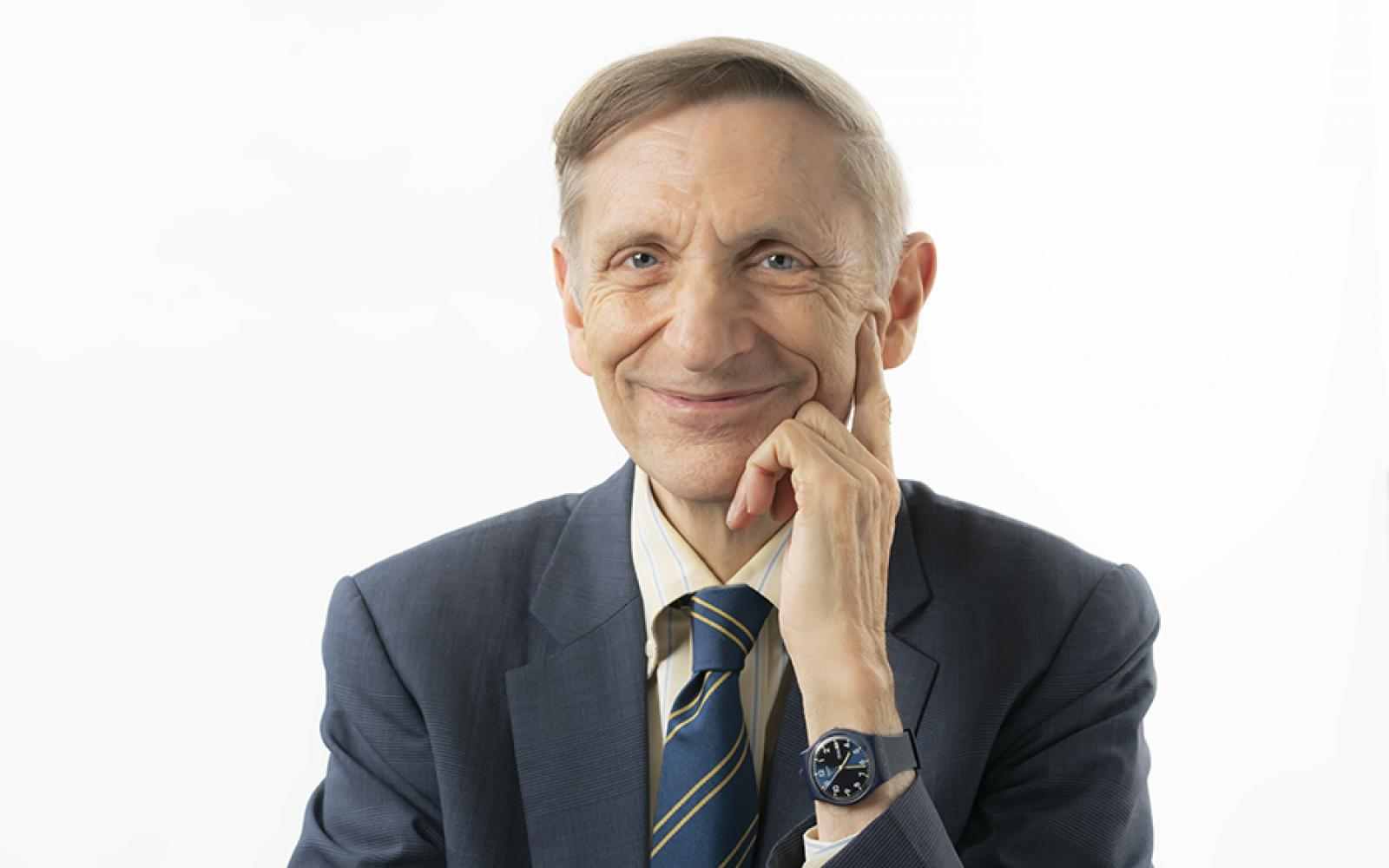
Bill Drayton was born in 1943 in New York City. He is widely recognized as a pioneer of social entrepreneurship. Drayton earned his bachelor’s degree from Bryn Mawr College and later obtained a Juris Doctor (JD) from Harvard Law School. He popularized the term “social entrepreneur” and founded Ashoka: Innovators for the Public in 1980. Today, Ashoka supports over 3,800 social entrepreneurs across more than 90 countries, helping them scale impact through innovation and systems changes.
The idea of Ashoka came to Drayton in the 1960s, when he was a student traveling through India. During his internship in Calcutta, he was struck by how deeply rooted social problems were in resource-limited countries. Neither the government nor charitable organizations were able to solve these issues effectively. Bill noticed that real change happens when people who think outside the box take responsibility, teachers, lawyers, ecologists, doctors, and engineers, working independently. These individuals resembled entrepreneurs, but instead of working for profit, they worked for a mission. That’s when Drayton began imagining a system to support these people, whom he would later call social entrepreneurs.
In 1980, drawing on his experience in consulting at McKinsey & Company and his work with the U.S. Environmental Protection Agency, Drayton founded Ashoka. He chose the name after the Indian Emperor Ashoka, who ruled in the 3rd century BCE. Emperor Ashoka is remembered for embracing Buddhism following a brutal war and dedicating his life to peace, justice, and social reform.
Drayton began by seeking out individuals capable of radically transforming social realities, not just offering help, but systematically changing the rules of the game within their communities. He selected the first group of ten “Ashoka Fellows” in India and then expanded the initiative to other countries.
Initially, Ashoka operated on grants from private donors and small foundations. Its primary mission was to find and support social entrepreneurs by providing them with modest financial stipends, enabling them to temporarily leave their regular jobs and fully dedicate themselves to their ideas. Alongside funding, Ashoka offered access to professional support and an international network. One of Ashoka’s key innovations was its rigorous selection process. Drayton developed strict criteria focusing on the presence of innovative ideas, entrepreneurial mindset, creativity, ethical standards, and potential for large-scale impact. This approach allowed Ashoka not just to fund “good initiatives,” but to identify those whose ideas could transform entire systems, whether in education, poverty alleviation, healthcare access, or women’s rights.
The organization doesn’t just provide funding; it builds a support ecosystem that includes education, mentorship, growth assistance, and connecting NGOs with businesses. Ashoka was the first in the world to transform social entrepreneurship into a professional field, on par with business, politics, and science.
“Together, we mobilize and accelerate a movement to build an “Everyone a Changemaker” world: where everyone has the right and ability to co-lead solutions that transform their societies for the better(directly addressing the rise of a new inequality in changemaking worldwide” believes Drayton.
Bill Drayton has received honorary doctorates from several universities, including Bryn Mawr College and Boston University, in recognition of his contributions to social innovation. In 2007, Forbes named him one of the world’s leading social entrepreneurs, awarding him the title “Person of the Year.” He is also a recipient of the MacArthur Fellowship, often called the “genius grant” for his innovative projects and significant impact on society. Drayton was honored with the Henry David Thoreau Award for leadership in sustainable development and social change. Additionally, he received the Rotary International Award for advancing peace and social justice. Internationally recognized, he is listed among the World Economic Forum’s global “Leaders of Change” and has been a frequent speaker at its sessions.
Economist and social entrepreneur from Bangladesh
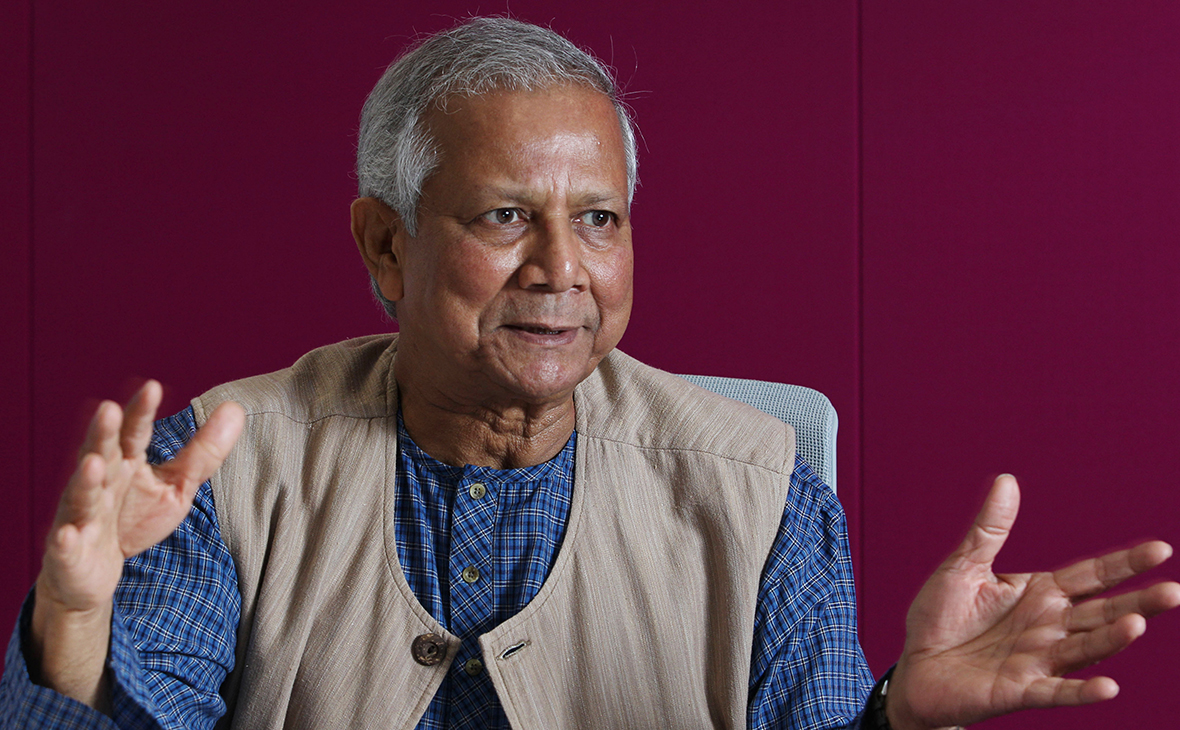
Muhammad Yunus became a pioneer of microloans by launching Grameen Bank, the first financial institution entirely focused on lending to people in need. He was born on June 28, 1950, in the town of Chittagong, which was then part of British India (now Bangladesh). Yunus earned his degree from the University of Dhaka and later continued his education in the United States, where he received a PhD in economics from Vanderbilt University.
In 1983, Muhammad Yunus founded Grameen Bank, an organization that offers loans without collateral or guarantors, primarily to women from low-income communities. The bank operates on principles of trust, collective responsibility, and community support. This model has helped millions start their own businesses and improve their quality of life, becoming a global example for inclusive and ethical finance.
Muhammad Yunus and Grameen Bank were jointly awarded the Nobel Peace Prize in 2006 in recognition of their efforts to fight poverty. Over the course of his career, Yunus has received more than a hundred international awards from 26 countries. Among the most notable are the Ramon Magsaysay Award for Community Leadership (1984), the World Trade Award for Trade Security (1994), the UNESCO Simon Bolivar Prize (1996), the Prince of Asturias Award for Concord (1998), as well as the Sydney and Seoul Peace Prizes.
Furthermore, Muhammad Yunus has been awarded 71 honorary doctoral degrees from institutions in 27 countries, including the United Kingdom, the United States, Japan, and India. In 2009, U.S. President Barack Obama honored him with the Presidential Medal of Freedom, one of the highest civilian awards in the country. Yunus also received the Congressional Gold Medal, further adding to his long list of prestigious recognitions.
Fortune magazine named Muhammad Yunus one of the 12 greatest entrepreneurs of our time, highlighting his groundbreaking approach to entrepreneurship rooted in a strong social mission. In 2008, the city of Houston, Texas declared January 14 as Muhammad Yunus Day in recognition of his dedication and lasting impact on the global community.
American entrepreneur and social activist
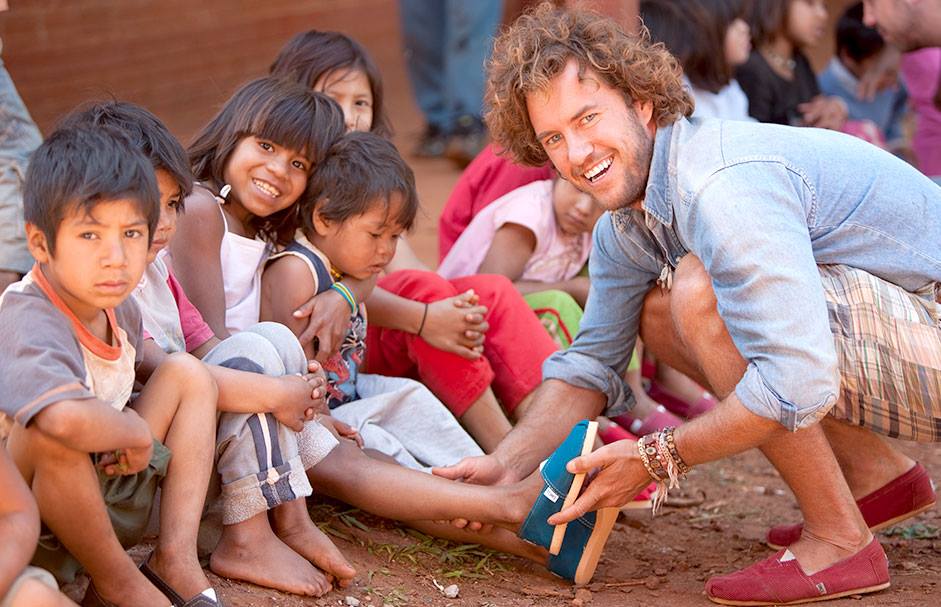
Blake Mycoskie founded TOMS Shoes, which gained popularity thanks to its One for One business model—combining commercial success with charitable impact. He was born on July 26, 1976, in Portland, Oregon, and earned his degree from the University of Oregon, where he studied marketing and communication.
The idea for a business model in which every pair of shoes sold would fund a donated pair for a child in need came to Mycoskie during a trip to Argentina. There, he noticed that many children were barefoot, which negatively affected their health. In 2006, he launched TOMS Shoes, one of the first companies to bring the concept of social entrepreneurship into mainstream business. The brand quickly rose to global popularity, selling millions of pairs of shoes and donating the same number to children around the world.
In 2007, just a year after its founding, TOMS received the People’s Design Award from the Cooper-Hewitt National Design Museum of the Smithsonian Institution.
In 2009, Mycoskie and TOMS were honored with the U.S. State Department’s Award for Corporate Excellence (ACE), which is given to companies demonstrating outstanding corporate social responsibility.
In 2011, Fortune magazine included Mycoskie in its 40 Under 40 list, recognizing him as one of the most influential young entrepreneurs.
In 2013, he was named one of the top five communicators in the world by USA Today and received the ISPA Humanitarian Award for his charitable work.
In 2015, the T.H. Chan School of Public Health at Harvard University honored Mycoskie with the Next Generation Award, recognizing his leadership and commitment to the idea of healthcare as a fundamental human right.
In 2016, he received the Cannes LionHeart Award, which honors individuals who use their brand to make a positive social impact.
Blake Mycoskie was also included in People magazine’s Heroes Among Us list and named ABC News’ Person of the Week in 2011.
American entrepreneurs and activists in the field of sustainable development and social responsibility.
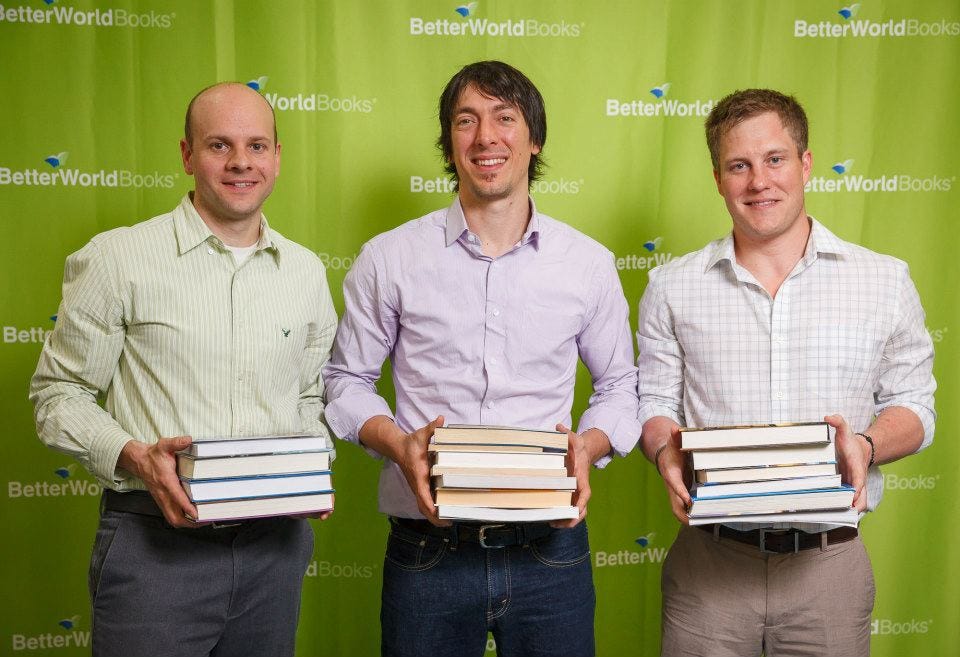
Xavier Helgesen, Christopher Fuchs, and Jeff Kurtzman met while studying at the University of Notre Dame in Indiana, USA. All three shared a deep passion for books, education, and social responsibility, which eventually became the foundation for their project.
In the early 2000s, these young entrepreneurs came up with the idea of combining business with the mission to tackle social and environmental issues. They were struck by the fact that countless used books end up discarded or forgotten, while at the same time, many people around the world still lack access to educational resources.
In 2002, Xavier Helgesen, Christopher Fuchs, and Jeff Kurtzman founded Better World Books, an online marketplace for used books that also supports global literacy efforts. The company collects donated books through bookstores and libraries, sells them online, and donates a portion of the profits to fund literacy programs and library support initiatives.
Better World Books donates millions of books and significant funds to support literacy efforts.
The company also prioritizes environmental sustainability, for example, it runs a book recycling program that helps reduce waste and promote reuse.
In 2019, Better World Books was nominated for The Index Project in the Game and Play category for its contribution to responsibility and production, highlighting the innovative and socially significant nature of its business model. The company has also been awarded B Corporation certification, confirming its commitment to high standards of social and environmental responsibility. In 2015, Investopedia included Better World Books in its list of The 10 Most Successful Social Entrepreneurs, alongside well-known figures such as Muhammad Yunus and Blake Mycoskie.
After the success of Better World Books, Xavier Helgesen co-founded Off Grid Electric, a company that brings renewable energy to households in remote areas.
Christopher (Chris) Fuchs is now the Chief Operating Officer at Trek10, which helps clients optimize their use of Amazon Web Services.
Jeff Kurtzman is the co-founder of the NGO Operation Incubation, which provides low-cost incubators to help reduce infant mortality in developing countries. Previously, he served as CEO of Aid Through Trade, an organization that distributes handmade goods from Nepal to the U.S. market.
British inventor and social entrepreneur
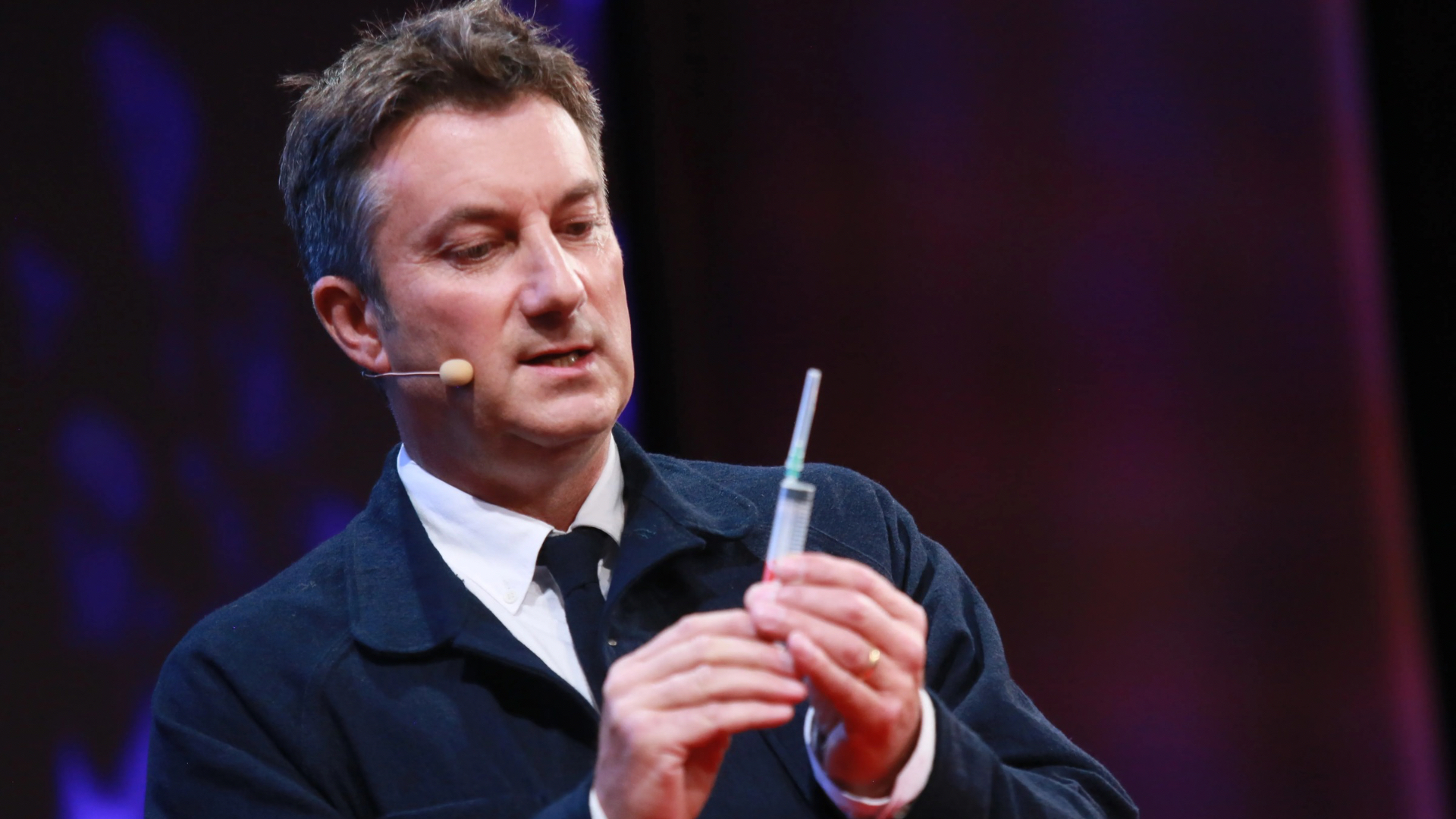
Marc Koska is the inventor of the K1 syringe, a non-reusable, self-locking syringe with a mechanism that locks the plunger and retracts the needle into the casing, preventing reuse and helping stop the spread of diseases.
He was born on March 14, 1961, in Bournemouth, England, and studied at Stowe School in Buckinghamshire, United Kingdom.
In 1984, while working in the Caribbean, Koska came across an article warning about the spread of HIV through the reuse of syringes. Despite having no medical background, he dedicated the following years to studying syringe mechanisms. He visited factories, learned about the plastic industry, and immersed himself in research, all to design a safe and affordable non-reusable syringe.
In the middle of 1990s, Marc Koska invented the K1, the first self-locking syringe that breaks after a single use, preventing reuse. The K1 syringe could be produced on existing manufacturing equipment, making it easy to adopt in medical practice. In 2001, UNICEF approved the K1 syringe for use in immunization campaigns, and since then, millions of units have been distributed worldwide.
In 2005, Koska founded SafePoint Trust, a charitable organization focused on raising awareness about the dangers of reusing syringes and promoting safe injection practices. SafePoint has conducted educational campaigns across India, Pakistan, Malaysia, and Indonesia, teaching communities about syringe safety.
In 2006, Marc Koska was awarded the Order of the British Empire (OBE) for his contribution to global healthcare. He also received The Tech Awards for innovation in healthcare and was a winner of The Economist’s award for social and economic innovation. Koska has been recognized as a leading social entrepreneur by the Schwab Foundation.